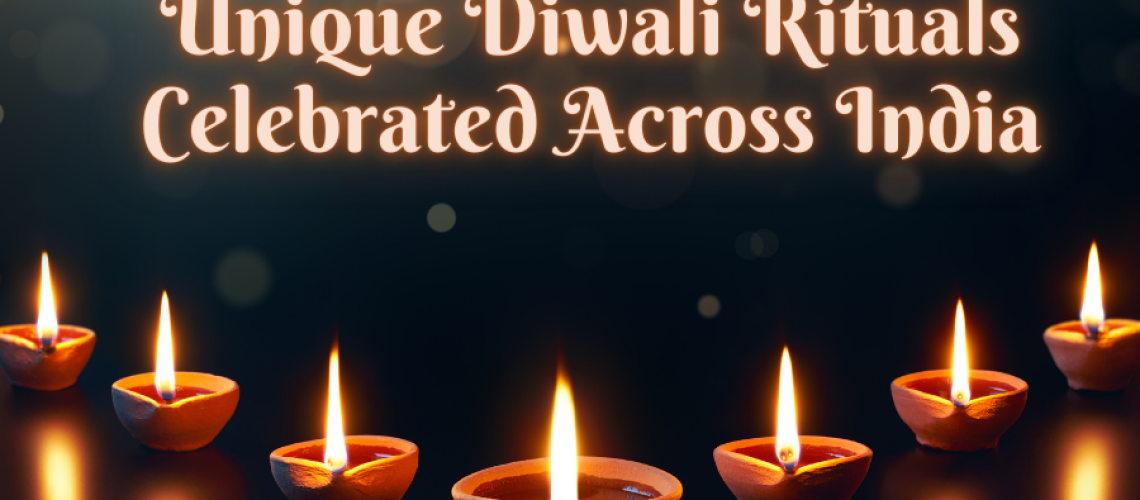Diwali, also known as Deepavali, is one of India’s most cherished and widely celebrated festivals. It’s a time when the entire country is bathed in the warm glow of lights, ringing with joy and laughter.
We all are excited for Diwali, the Festival of Lights, as it is around the corner, but did you know that it is not only about illuminating homes with lamps and bursting fireworks?
Diwali is not only a celebration of lights, rangoli, and sweets, but there are also other traditions and stories related to it.
So, come let’s find out what other traditions are related to our Diwali…
#1 West Bengal Diwali Ritual- Kali Puja
When the whole world is worshipping Goddess Lakshmi on the day of Diwali, the people of Bengal take a different path by offering their devotion to Goddess Kali as their diwali ritual. In West Bengal, Diwali is celebrated as “Kali Puja.” Goddess Kali, known for her fierce form and association with Shakti, takes center stage during this time.
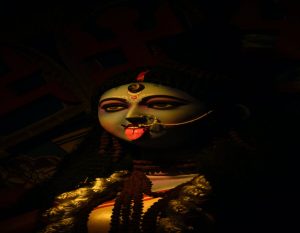
The celebrations involve adorning idols of Goddess Kali with vibrant flowers and offering her sweets, incense, and lamps. This ritual stands in stark contrast to the generally serene and luminous Diwali celebrations in other parts of India. It’s a unique and intense expression of devotion to a deity who symbolizes strength and courage, making Bengal’s Diwali truly distinct from the rest of the country.
#2 Goa Diwali Ritual – Narkasur Chaturdashi
In the sunny state of Goa, Diwali comes alive with the spirited celebration of ‘Narkasur Chaturdashi.’ According to mythology, Narkasur was the once-arrogant king of Goa, known for his wickedness and supernatural powers. His reign of terror came to an end when Lord Krishna defeated him in a battle that concluded just before dawn.
The unique aspect of Goan Diwali is the parade of Narkasur’s effigy through the streets. This represents the defeated demon king. It is also a symbolic representation of the victory of good over evil.
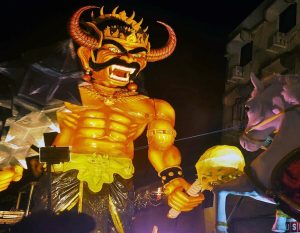
As the sun dips below the horizon, these effigies are set ablaze, accompanied by vibrant fireworks. It is believed that the fiery spectacle not only celebrates Narkasur’s defeat but also signifies the triumph of light over darkness, a central theme of Diwali celebrations across the nation.
#3 Karnataka Diwali Ritual- Balipadyami
In Karnataka, Diwali carries a unique flavor, marked by ‘Balipadyami,’ which is a day of devotion to King Bali. This custom is deeply rooted in the region’s culture and tradition.
On this day, farmers gather in their paddy fields to offer food and prayers as part of the Balipadyami ritual. It’s a time of gratitude for the bountiful harvest and a gesture of respect to the ancient and benevolent king, Bali. The act of offering food around the paddy fields holds deep significance, connecting the people to their agricultural roots.
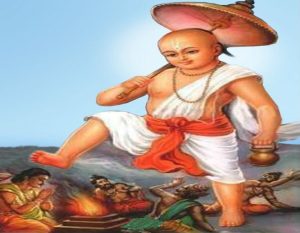
Moreover, the people of Karnataka take an oil bath on the first day of Diwali, mirroring a mythological tale of Lord Krishna. After vanquishing the demon Narakasura, Lord Krishna cleansed his body of any residual sin through an oil bath. This practice is seen as a way to purify oneself and start anew.
#4 Punjab Diwali Ritual – Bandi Chhor Divas:
Diwali holds a special significance for Sikhs, celebrated as ‘Bandi Chhor Divas,’ which translates to the ‘Day of Liberation.’ This observance commemorates a remarkable event in Sikh history when Guru Hargobind Ji, the sixth Guru, was released from imprisonment.
Guru Hargobind Ji had been imprisoned in the Gwalior Fort by Emperor Jahangir due to the fear of his growing influence and popularity. His release coincided with the Hindu festival of Diwali, marking the triumph of light over darkness, good over evil, and freedom over oppression.
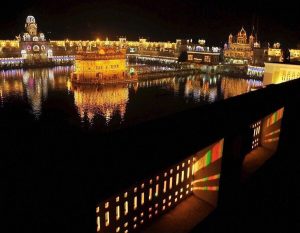
In honor of this historical event, Sikhs light up the Golden Temple in Amritsar with countless lights, creating a mesmerizing spectacle that symbolizes the dispelling of darkness and the advent of hope. Fireworks, gifting, and communal feasting are all part of this celebration, where the story of Guru Hargobind Ji’s release serves as a powerful reminder of the triumph of justice and righteousness.
#5 Assam Diwali Ritual – Kati Bihu
In Assam, Diwali takes on a unique form as ‘Kati Bihu.’ This harvest festival, a vital part of Assamese culture, begins with the lighting of earthen lamps in the fields. As the lamps glow, people perform rituals seeking blessings for a bountiful harvest.
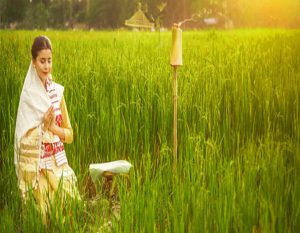
ati Bihu blends age-old traditions with Assamese customs, making it a time of cultural celebration and gratitude for the agricultural abundance that sustains the region. It’s a beautiful fusion of Diwali’s spiritual essence with the practicality of agricultural life, symbolizing the importance of the harvest in the lives of the people of Assam.
#6 Kerala Diwali Ritual – Thiruvathira Kali
In Kerala, Diwali is celebrated with the traditional ‘Thiruvathira Kali’ ritual, a captivating dance performed exclusively by women. This graceful dance involves women forming circles, clapping their hands in rhythm, and moving in graceful unison around a lit lamp. The dance, accompanied by melodious traditional songs and heartfelt prayers, not only signifies the essence of Diwali but also symbolizes unity, devotion, and the spirit of togetherness.
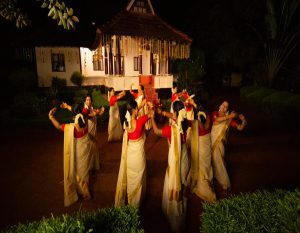
‘Thiruvathira Kali’ is a cultural embodiment of the festive season in Kerala, where the elegance of the dance and the significance of the lamp offers a beautiful and spiritual expression of Diwali’s deeper meaning.
#7 Himachal Pradesh Diwali Ritual – Diwali with a Twist
In Himachal Pradesh, Diwali rituals bear a resemblance to those in other parts of North India, yet they have a distinctive twist. Here, people light lamps crafted from wheat dough, known as ‘Phulli.’ These dough lamps are believed to usher in good luck and prosperity to the household. The tradition of ‘Phulli’ lamps adds a unique touch to the celebration as families come together to kindle these symbolic lights, signifying the triumph of light over darkness and the hopeful start of a prosperous and fortunate year ahead. It’s a delightful custom that blends the universal Diwali spirit with the region’s own charm.
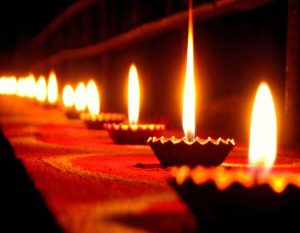
Diwali is a remarkable festival that beautifully illustrates the diversity of India’s culture and traditions. Whether it’s the fierce devotion to Goddess Kali in West Bengal or the quiet Thiruvathira Kali in Kerala, Diwali celebrations capture the essence of unity in diversity that India is known for.
Each of these regional Diwali rituals brings its unique flavor to the festival, enriching our understanding of the rich tapestry of Indian culture. As we celebrate the festival of lights, let’s also take a moment to appreciate the depth and diversity of the customs that make Diwali truly extraordinary.
Well, I hope you all are ready for diwali. In case you are looking for some easy recipes that you can cook on the occasion of diwali then don’t forget to check out the blog on “5 Easy Dessert Recipes for Non-Bakers.”

